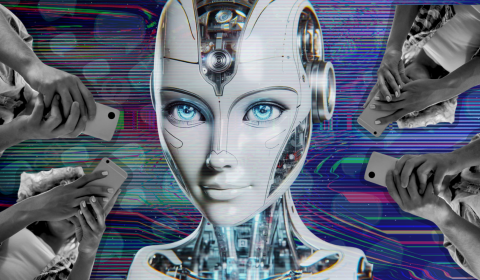A Nanjing-based company named Silicon Intelligence is using Artificial Intelligence to create virtual chatbots of people’s deceased friends and family.
Every day, we get one step closer to living inside an episode of Black Mirror. Heck, a quick look around may suggest we’re already there. The plot just thickens by the hour.
The second season of Netflix’s wildly popular dystopian series kicks off with the story of woman continuing her relationship with her dead husband via software that scrapes his digital footprint to replicate his likeness. She communicates with him through e-mail, instant messaging, and regular phone calls.
This practice may have seemed far-fetched at the time of the episode’s release, but it is becoming more common than many might realise. Companies all over the world are now utilising Artificial Intelligence (AI) to build software that combines image and voice data to create ultra-realistic avatars of people, dead or alive.
Such developments open a world of new possibilities for those struggling to cope with loss. Still, while creating AI avatars of our deceased loved ones is entirely possible when their image, voice, personality, and unique quirks are forever immortalised by their digital footprint – does that mean we should?
That depends who you ask.




















